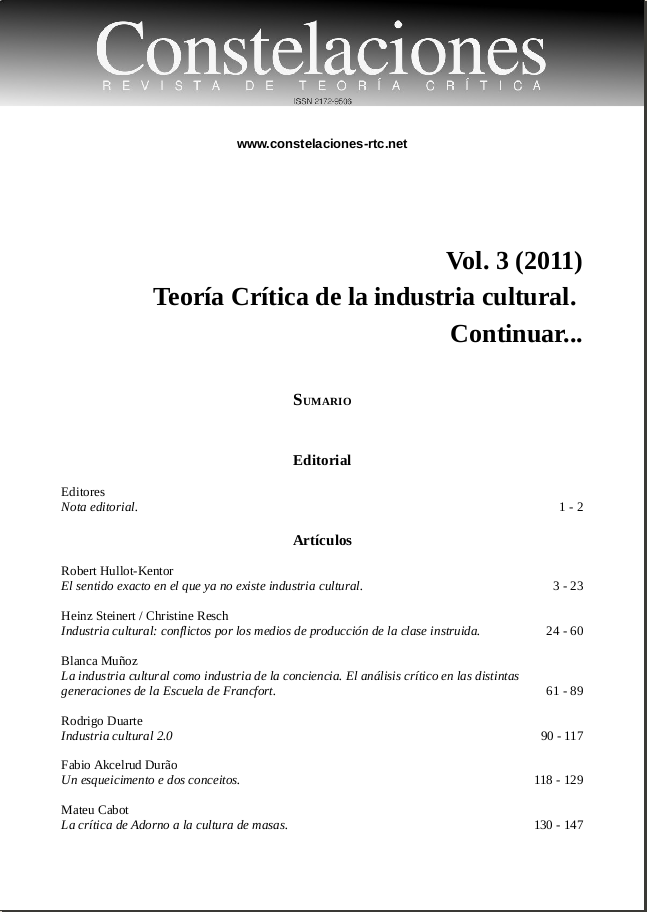Pensar la literatura policial: Siegfried Kracauer, Walter Benjamin, Ernst Bloch, el género y la disolución de los vínculos comunitarios
Palavras-chave:
Benjamin, Bloch, Kracauer, literatura policial, vida moderna, ciudad, leyResumo
Este ensayo analiza las reflexiones de Benjamin, Bloch y Kracauer sobre la novela policial y sus vínculos con nuevos modos de vida y de socialización, que incluían -según estos autores– el desconocimiento del prójimo, la pérdida de la relación del hombre con la trascendencia, la escisión entre el sujeto privado y su vida pública, etc. Intentamos demostrar que ellos analizaron distintas características del género a la luz de la disolución de los vínculos comunitarios y las determinaciones sociales surgidas a fines del siglo xviii y comienzos del xix. Apartir de ello, indicamos cuáles han sido las contribuciones respectivas al estudio del género, postulamos una superación en Bloch de las perspectivas de Benjamin y Kracauer, e indicamos en qué medida la evolución de la literatura policial sigue dando cuenta de conflictos existentes, relacionados con la representación de la ley y su aplicación sobre los cuerpos. Asimismo, mostramos cómo –de acuerdo con la tesis de Richard Hoggart– la transformación del género en un producto masivo le quita parte de su fuerza crítica.Downloads
Downloads
Publicado
Como Citar
Edição
Secção
Licença
Aquellos autores/as que tengan publicaciones con esta revista, aceptan los términos siguientes:
1. Los autores/as conservarán sus derechos de autor y garantizarán a la revista el derecho de primera publicación de su obra, el cuál estará simultáneamente sujeto a la Licencia de reconocimiento de Creative Commons que permite a terceros compartir la obra siempre que se indique su autor y su primera publicación esta revista.
2. Los autores/as podrán adoptar otros acuerdos de licencia no exclusiva de distribución de la versión de la obra publicada (p. ej.: depositarla en un archivo telemático institucional o publicarla en un volumen monográfico) siempre que se indique la publicación inicial en esta revista.
3. Se permite y recomienda a los autores/as difundir su obra a través de Internet (p. ej.: en archivos telemáticos institucionales o en su página web) antes y durante el proceso de envío, lo cual puede producir intercambios interesantes y aumentar las citas de la obra publicada. (Véase El efecto del acceso abierto).
Confidencialidad de los datos
1. Constelaciones. Revista de Teoría Crítica garantiza que los datos que nos envíe serán utilizados únicamente para atender sus demandas manifestadas en este mensaje.
2. Sus datos no serán cedidos a terceros.
3. Cuando lo desee puede solicitar que sus datos sean eliminados de nuestros registros.





